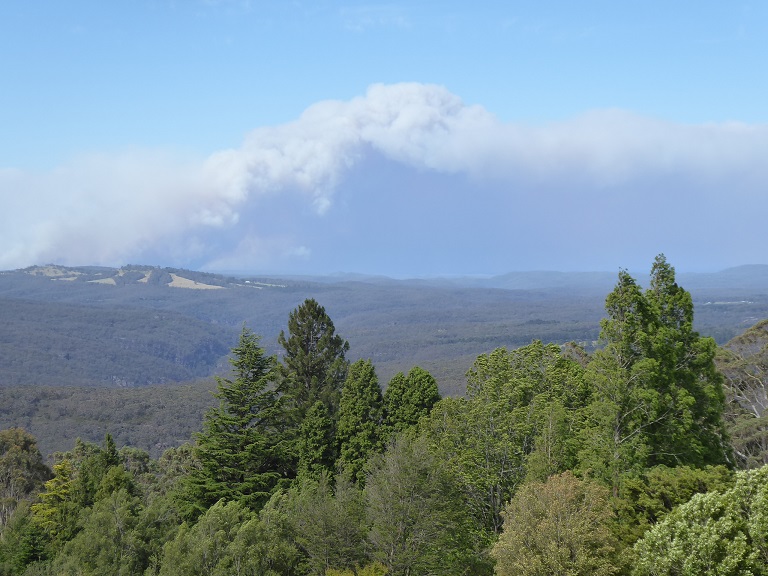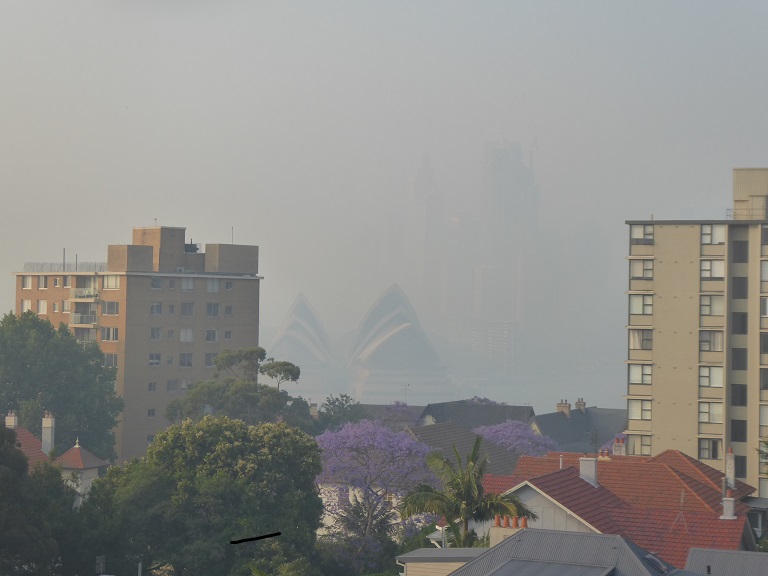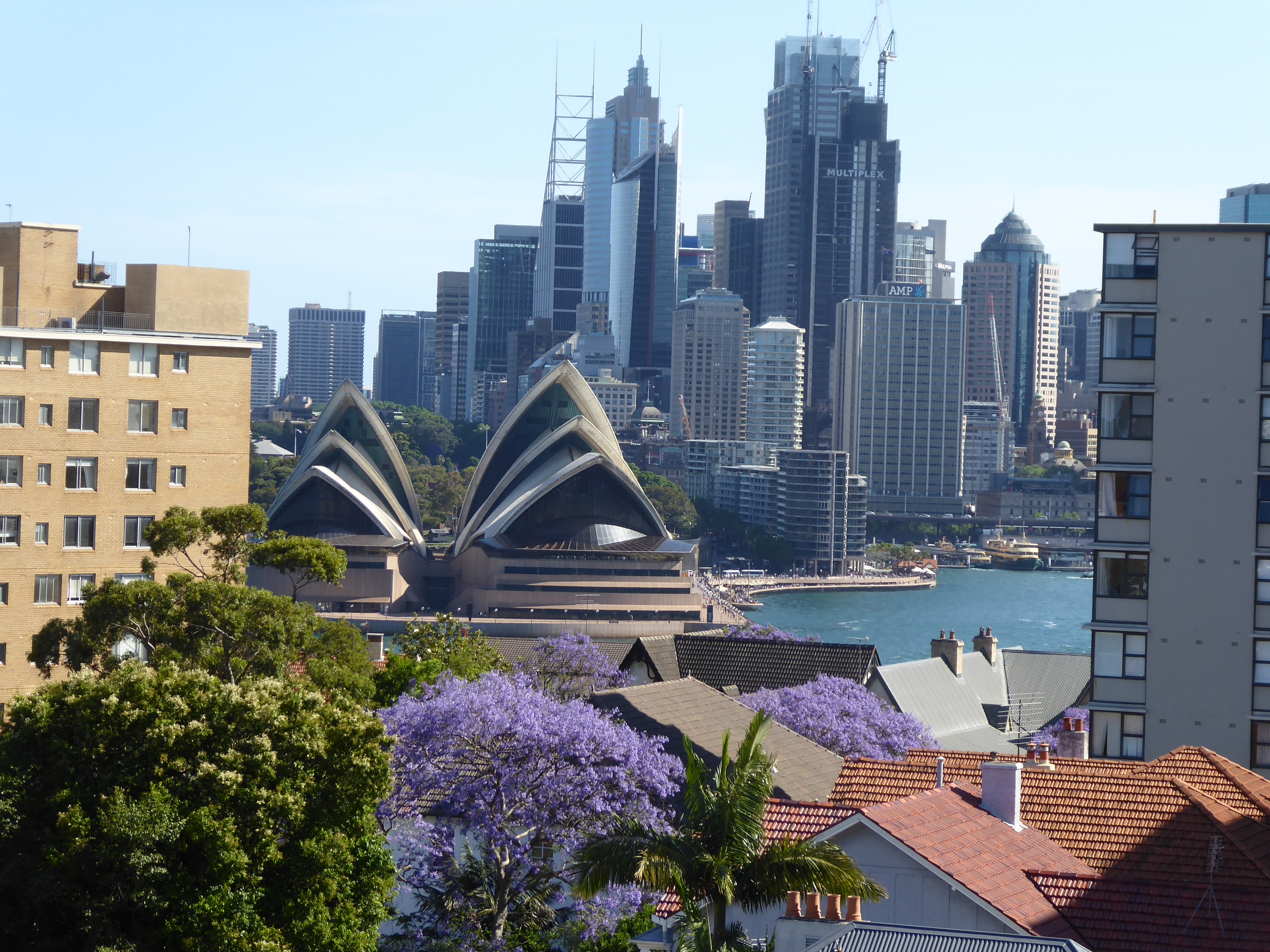
I am in Australia, having travelled from a country where soils and vegetation are being washed away by water (see here) to one where they are being ravaged by fire. Both fire and flood have been triggered by extreme weather events which are a consequence of the global climate and environmental crisis. In Australia there have been not just record Spring temperatures and high winds, with gusts of 80-90mph more reminiscent of the Cairngorm plateau, but this comes after several years drought. The wind acts as fire bellows and almost every day I have been here there have been warnings of catastrophic fire risks.
Despite knowing about the impact of air travel on global warming, I hardly thought twice about coming here. I come from a family split between two continents and cheaper long distance flights have revolutionised how families in our position keep in touch. Fossil fuels made that, and many other improvements to our lives, possible. Our unrestrained use of such fuels however now threatens the world that the more privileged of us at least have been able to enjoy.

I am travelling home later today but woke up in Sydney this morning to the smell of smoke from bush fires. The whole city is shrouded in it and young and old are being advised not to go out because of the pollution.

It was similar north up the coast in Newcastle, one of the coal capitals of Australia, where ships lie off the shore waiting to take coal up the coast to China. The whole city had been surrounded by smoke for days and my eyes smarted from the particles in the air. The impact on life expectancy of people living here permanently must be significant.
And inland in a town called Orange where the smoke from the Wollemi National Park 50 or so miles away reached us one morning.
Recent polls show that 85% if Australians now believe the extreme weather is associated with climate change (part of the explanation for the drought in New South Wales is that as Australia gets ever hotter moister airflows have been forced south depriving the country of water). The politicians, however, are still in denial and continue shamelessly to promote mining interests. 10 days ago Australia’s deputy prime minister called the Greens “lunatics” for attributing the unprecedented extend of the fires to climate change. Today, the Prime Minister, Scott Morrison, whose politics are close to those of Donald Trump, said it was ridiculous to say Australia was responsible for climate change when it accounts for 1.3% of the world’s carbon emissions. He failed to mention that not included in that figure is all the coal Australia exports to Asia and is burned there. Australia accounts for 30% of the world’s coal exports.
So, sitting in the smoke, was I wrong to travel here?
Well, if we to reduce carbon emissions, we need to recognise that people have all sorts of good reasons for consuming carbon (such as keeping warm or getting around) and we need to focus on areas where we can either reduce carbon consumption (eg well insulated houses) or substitute carbon burning with renewable energy. Of all the contributors to global warming long distance air travel seems to me one of the hardest to solve.
For shorter flights, if we get public transport right (train travel in Australia is by the way about 1/4 of the price of Scotland) it would not be too difficult for people to adjust to going by train (sleepers etc). For that to happen, we need political action to reduce train fares, improve train and bus services, and increase the costs of short flights. This could be done quickly, however, given the political will – interestingly in Australia the polls show people want ACTION from their politicians.
How to travel across continents is a much trickier issue to solve. Most people could not afford the time to travel by boat as my mother did when she first came to Britain (6 weeks). It does seem to me that long-haul air flights is one area where carbon offsetting might be a legitimate way forward long term. That would have a signficant impact on the cost of flights and it doesn’t mean to say that people should travel as often as they do now.
Looked at the other way, having arrived at Glasgow airport from Australia, however, and contributed to the cost of reforesting the Loch Lomond and Trossachs National Park through your offsetting, you should be able to get around the National Park by public transport and not have to hire a car. At present, after walking past the huge photos of the Park that grace the wall of the Glasgow airport arrivals corridor, you cannot even get a direct bus to Balloch.
Climate hyprocrisy?
So is it hyprocritical to fly to Australia after criticising the LLTNPA Board for not doing nearly enough to develop more sustainable forms of travel within the National Park (see here)?
Earlier this year I took the decision to try and stop flying anywhere in Europe and have not flown within the UK for almost 10 years. In Australia, an incredibly car dependent society, I have tried to travel between towns by train. The point is we will all have different lines on how far we are personally prepared to reduce our impacts. While the climate crisis should cause us to reconsider those personal lines, the most important thing is that people campaign and push for actions from our politicians and other bodies, including National Park Authorities, for changes that would collectively reduce carbon emissions.
Most of the National Parks in New South Wales have been closed these last few weeks due to the fire risk, and several have gone up in smoke. Over the next week or so I will take a look at what Scotland’s National Parks might learn from Australia.
